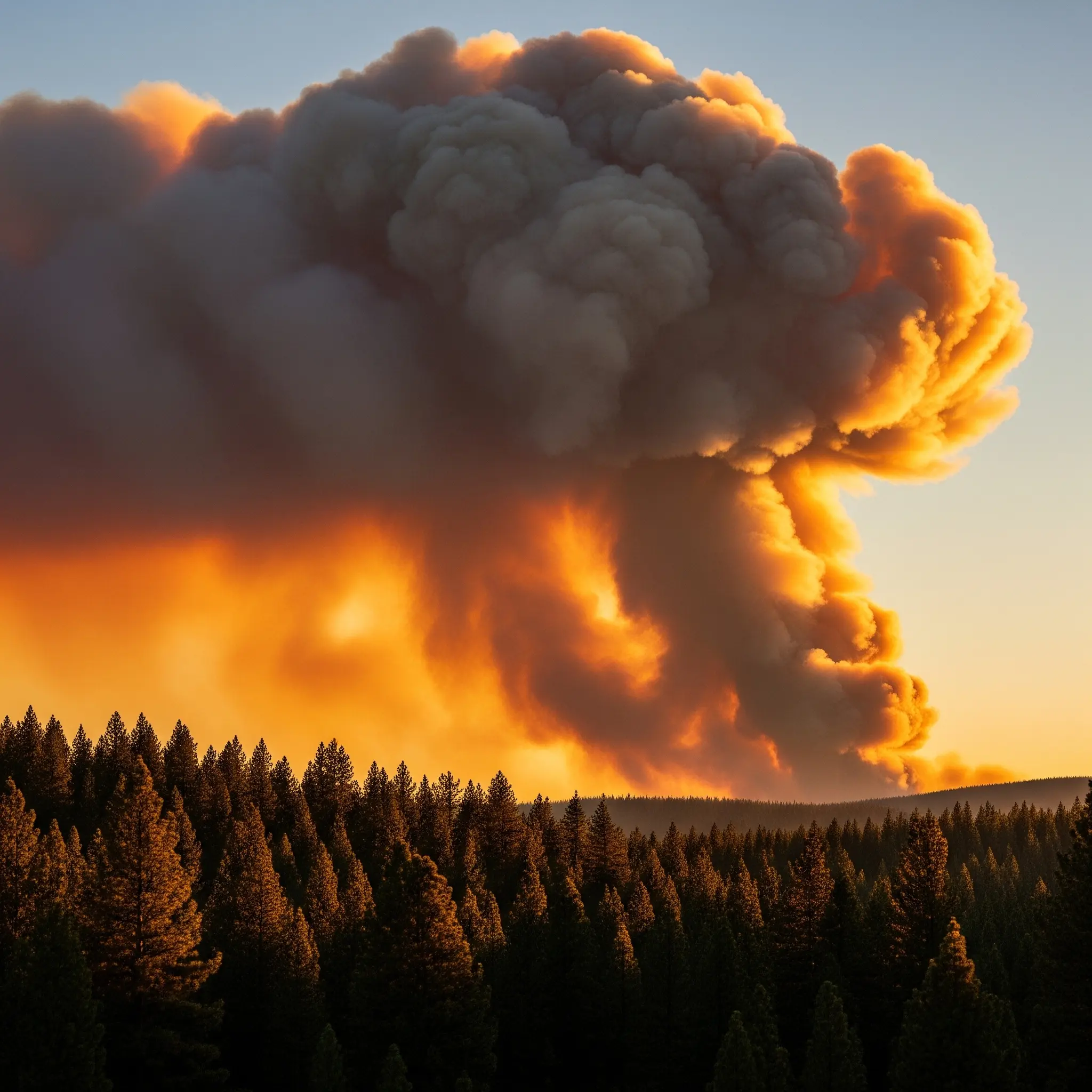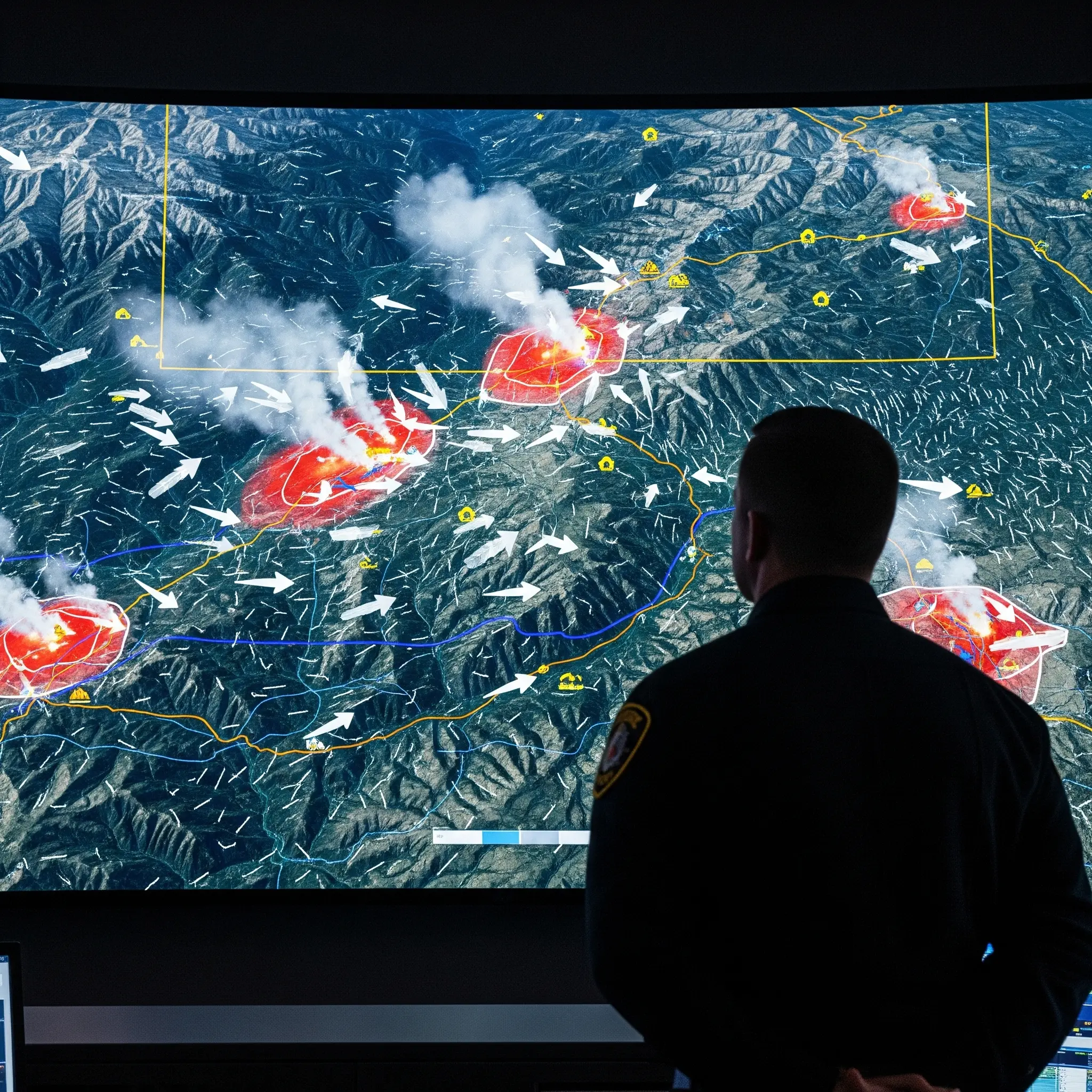The recent increase in wildfires across the West has impacted air quality and put people’s health at risk from smoke exposure. This exposure can be sudden, last for days or weeks, and affect indoor and outdoor air quality. Smoke can travel great distances and become trapped in areas far from the source of the wildfire by weather patterns.
Smoke is the product of incomplete combustion and produces a complex mixture of carbon dioxide, water vapor, carbon monoxide, particulate matter (PM10 and PM2.5), hydrocarbons, and nitrogen oxides. Fine particulates–PM2.5–are the primary health concern from short-term smoke exposure because they lodge deeply in the lungs and lead to respiratory and cardiovascular problems.

Air quality conditions
Find apps and websites that provide current air-quality conditions.

Find wildfires
Locate active wildfires in the state and region.

Health impacts
Learn more about the health impacts of wildfire smoke.

Protect yourself
Learn what you can do to minimize your exposure to wildfire smoke, both outdoors and indoors.

For public water systems
Find guidance on protecting sources, infrastructure, and water quality from the impacts of wildfire.
